Think of project management as a well-organized kitchen.
The project manager is the head chef, and each team member represents a skilled cook with a unique set of ingredients and expertise. The project, in this case, is the dish (or an entire menu) that has to be made.
The project manager coordinates the activities, ensures everyone has the necessary ingredients (resources), and orchestrates the workflow to create a successful project. Just as a chef balances flavors, a project manager balances tasks, timelines, and resources to deliver a project that satisfies the 'palates' of stakeholders and meets project goals.
However, project management is an ever-evolving field, with new methodologies and technologies continuously emerging to help professionals improve their efficiency and success rates. In the world of project management, technology is no longer a luxury but a necessity. It equips project managers with tools, techniques, and frameworks to deliver projects on time, within budget, and according to scope.
So, to take their work to the next level, project managers should embrace digital transformation through the use of project management technology and tools.
In this blog, we will delve deeper into how project managers can invest in technology and focus on four key areas that will help them achieve greater project efficiency and success.
What is project management?
Project management is the art of initiating, planning, executing, controlling, and closing projects.
It involves organizing and managing resources efficiently and effectively to successfully complete project goals within set time and budget.
Importance of project management in achieving project efficiency and success
Project management plays a paramount role in achieving efficiency and success in any business operation. Regardless of the size or scope of your project, establishing solid project management practices can significantly impact its ultimate success. It involves proper schedule management, resource allocation, quality control, risk management, and effective communication.
Here are a few reasons why project management is integral to project success and efficiency.
Project management provides clarity and direction
With clearly defined roles and responsibilities, it minimizes confusions and keeps everyone in the team on the same page. The project charter, a component of project management, outlines the project's scope, objectives, and execution, reducing the risk of misunderstandings or disagreements.
Project management aids in setting realistic goals and deadlines
Every business operates within specific timelines and budgets, and project management ensures that operations run smoothly within these set parameters. Effective project management can transform a chaotic bundle of tasks into a well-structured, streamlined process with achievable milestones and deadlines.
Project management optimizes resource management
Project management helps to assess the resources needed for a particular project. It also optimizes resources by assessing and efficiently utilizing staff, budget, and material resources, preventing wastage and leading to cost savings.
Project management identifies and addresses potential risks
It assists in identifying potential risks from the onset, creating a system for effectively addressing any issues, and evaluating the success of the project upon its completion. This allows for continuous improvement in the execution of future projects.
Project management improves customer satisfaction
Delivery of quality output, on time and within budget, plays a key role in determining a customer's level of satisfaction. With effective project management, it's easier to meet or even exceed the customer's expectations, which results in repeat business and brand loyalty.
Project management, therefore, play a critical role in ensuring that these aspects are addressed, ultimately driving the project toward completion while meeting stakeholder expectations.
Learn how to present your project schedule visually in the form of a Gantt chart.
The role of project managers in effective project management
Project managers are pivotal for project success. They lead the entire project lifecycle, setting clear goals, creating detailed plans, and managing teams effectively. Project managers establish precise goals to provide direction for the team. They create comprehensive plans, mapping out tasks and timelines for successful execution. Their role includes maintaining stakeholder relationships, addressing risks, solving problems, and ensuring smooth project progress.
Use root cause analysis (RCA), to solve project problems and prevent them from happening again.
Why use technology for project management
With the increasing complexity of projects and globally distributed teams, leveraging technology has become inevitable in project management. Technologies such as AI, machine learning, and professional services automation, to name just a few, can vastly improve efficiency by automating routine tasks and facilitating communication and collaboration. They also provide real-time data for informed decision-making. The use of technology does not replace the functions of a project manager but enhances them.
What is a project management software?
Project management software is a specialized tool that assists project managers and teams in managing projects. These tools can accurately handle complex tasks, from scheduling and allocating resources to performance tracking and reporting. Such software ensures that managers can keep track of all the moving parts of a project, mitigating risks and promoting productivity.
4 ways project managers can use technology to take their work to the next level
From improving communication to aiding in decision-making, project management tools offer numerous benefits to project managers. By leveraging them, project managers can optimize their workflow, increase productivity, and ultimately, improve the success rate of their projects.
Here are four ways project managers can use technology and tools such as PSA software to take their work to the next level.
1. Optimize resource management
One of the challenges in project management is ensuring that resources are used efficiently. Traditional methods of tracking resources, such as spreadsheets, can be tedious, time-consuming, and prone to errors. Project management tools can simplify and optimize this process. They can provide real-time updates on resource usage, enabling project managers to track and allocate resources more efficiently.
If you're a professional services business, PSA tools take resource management a step further by automating and streamlining key tasks, reducing the risk of over or under-utilization of resources. These tools offer a holistic view of the supply (available resources) and demand (projects or tasks needing resources), facilitating improved capacity planning. The integration of project information with essential resource data minimizes miscommunication and misinterpretation of resource requirements, contributing to more accurate decision-making and reduced risk of resource overallocation.
Discover 5 capacity planning steps that help avoid project management nightmares.
Resource management software also enables seamless integration of project information, including schedules, timelines, estimates, resource availability, and allocation details. This centralization and synchronization of data empower project managers to make quicker and more effective decisions. In conclusion, technology plays a pivotal role in optimizing resource management, maximizing utilization, strengthening planning, and ensuring project delivery success. These tools enhance the adaptability to changes, minimize waste, and increase overall project control, showcasing how technology can take project management to the next level.
2. Encourage financially sound project management practices
Project management isn't purely about execution; it's equally crucial to heed to the financial aspects. The introduction of technology and tools such as professional services automation software helps project managers to better plan, track, and manage their projects, while keeping a close eye on the budget.
Such technology aids managers to:
Customize and tailor project plans to suit each project
Project management software with predictive capabilities can map the project journey by creating plans that are tailored per project, offering a streamlined trajectory. Specialized project management software empowers project managers to customize project plans, allowing flexibility to adapt as project needs evolve.
Have real-time visibility of project status, performance, and financial progress
Real-time visibility into a project’s status, performance, and financial progress is imperative for project management success. Utilizing data visualization tools enables project managers to keep an eye on all facets of the project continually. PM tool dashboards give a quick overview, while detailed reports facilitate deeper understanding to enhance informed decision making.
Combine project accounting with project progress
It's significant to align your project's financial aspects with its progress. Project management tools that integrate project accounting systems offer comprehensive visibility into the project’s financial health. This setup enables managers to make real-time adjustments to keep the project within budget and on schedule. Additionally, it lets them enhance project financials with improved budgeting precision, comprehensive cost tracking from inception to completion, streamlined invoicing processes, and valuable insights into project profitability.
Identify, track, and manage potential project risks
Technology plays an instrumental role in risk management. With modern software solutions, project managers can identify, track, and manage potential risks efficiently. By assessing project risks in real-time, project managers can promptly address issues, avoiding potential pitfalls, and improving the likelihood of project success.
Proactively plan risk mitigation strategies
Risk mitigation must be proactive, not reactive – a principle made actionable with technology. Project management tools have features that can predict potential risks based on historical data, inputs, and algorithms. Cloud-based platforms can also enable team members to flag early signs of risk, facilitating a quicker resolution.
Automate risk response plans
Technology has unlocked automated risk response potential which used to be unheard of earlier. If a potential risk is identified, automated processes can trigger predefined response plans. This automation ensures that no time is wasted when a threat becomes a reality, and corrective actions are taken promptly.
By integrating technology into the project management process, your team becomes a powerhouse of efficiency, accuracy, and success, elevating your projects to new levels.
3. Improve collaboration
High-tech tools have revolutionized how project managers handle team collaboration. They enhance team cohesion by providing platforms where managers and team members come together to share ideas, give updates, and assist each other in real-time.
Unlike traditional face-to-face meetings, digital collaboration tools make brainstorming, decision-making, and progress-tracking easier and faster. With cloud-based solutions, teams can work concurrently on shared documents, reducing email overload and improving productivity. Live updates, shared workspaces, and task management features within project management software ensure seamless communication, eliminating gaps and enhancing team cohesion.
Modern project management and collaboration tools also address the challenges of remote project management. Video conferencing tools, virtual whiteboards, time-tracking software, and cloud storage solutions bridge geographical distances, facilitating efficient coordination with remote teams.
Technology and tools play a significant part in resource and financial management. They make it possible for project managers to predict resource needs, track and monitor billable hours, and offer insights into project profitability. Thanks to these helpful tools, project managers can make precise financial projections, optimize resource utilization and identify opportunities to reduce costs.
Enhanced communication is another strong argument for technology in project management. Technology significantly improves cross-team, cross-project, and cross-departmental communication. Automated alerts, integrated messaging systems, and universal access to data repositories enable smoother coordination and greater transparency.
Additionally, purpose-built tools designed explicitly for project management, covering tasks delegation, time management, file sharing, and progress tracking, streamline workflows and enhance efficiency. Project managers should be encouraged to explore and adopt these purpose-built tools, harnessing their power to deliver high-quality work on time and within budget. This will help project managers deliver high-quality work on time and within budget, paving the way for project success on every front.
4. Enhance data analysis and reporting metrics
Technology offers a high level of precision in data analysis, allowing project managers to track key performance indicators (KPIs) in real-time.
From task completion rates to budget variances, these tech solutions help keep projects on track. They also enable quick adjustments when issues arise, preventing minor problems from turning into major headaches.
A key advantage of incorporating technology is the heightened transparency it brings to project management. Cloud-based platforms and real-time updates facilitate up-to-the-minute insights for every stakeholder, fostering transparent communication, preventing misunderstandings, and ensuring alignment on project status.
Learn how to create a project status report to communicate the progress of your project with this free template.
Automated reporting tools are another powerful asset in a project manager's tech arsenal. These tools save an immense amount of time by automating and streamlining the creation of consistent, accurate, and timely reports. From individual task status reports to comprehensive project overviews, automated reporting makes it easy to keep everyone informed without manual effort.
Throughout the project lifecycle, tools facilitate comprehensive data collection, ensuring every piece of information is recorded and easily accessible for analysis. This continuous data flow provides an updated perspective on the project's health and overall success from initiation to closure. Technology platforms often come equipped with purpose-built, out-of-the-box performance reports and dashboards tailored for project management. These include metrics such as project timelines, resource utilization, and cost-vs-budget performance, offering project managers immediate insights for informed decision-making.
By employing thorough data analysis and reporting, project management technologies offer critical insights beyond project health, extending to areas like hiring decisions and revenue forecasting. This data-driven decision-making approach enhances consistency, efficiency, and overall project success.
Ultimately, the adoption of technology empowers project managers to make decisions grounded in data rather than intuition, fostering continuous improvement in project delivery. By closely analyzing project data, managers can identify trends, spot inefficiencies, and make instant corrections, leading to increased project efficiency.
Use this free project delivery plan template to deliver projects successfully every single time.
Project managers who are not yet leveraging technology in their work are inevitably leaving significant efficiency gains on the table. With these cutting-edge tools and technology, delivering successful projects has never been more achievable. It is high time for project managers to harness the potential of technology to elevate their projects, teams, and careers to the next level.
Drive project success with purpose-built technology
Technology is not just an addition but a necessity in today's project management world. The efficiency, transparency, and control provided by tech tools drive success in project management. By integrating data, facilitating communication, coordinating resources more effectively, and evaluating performance in real-time, technology enables project managers to take their work to the next level.
While traditional aspects of project management, including leadership, communication, and organization, remain critical, modern project managers must also possess a solid understanding of technology. Combining these classic skills with tech knowledge is essential for elevating the project management profession, contributing to project efficiency, and ensuring success.
Technology solutions for project management
Enterprise Resource Planning (ERP)
Incorporating ERP solutions into project management processes can help enhance overall business operations. ERP systems streamline various tasks, promoting seamless data flow across different departments. It ensures better coordination, resource optimization, and improved decision-making throughout the project lifecycle.
Project Portfolio Management (PPM)
PPM software provides a comprehensive approach to project management by offering a centralized platform for planning, executing, and monitoring projects. By providing real-time insights into project portfolios, PPM tools enable project managers to make informed decisions, allocate resources efficiently, and maintain alignment with strategic business goals.
Professional Services Automation software (PSA)
PSA software is instrumental in streamlining tasks, enhancing efficiency, and promoting team collaboration. These tools consolidate essential project data, providing comprehensive insights for accurate scheduling, resource allocation, and improved business visibility. PSA software, tailored to the needs of professional services, ensures transparent project oversight, contributing significantly to project success.
Purpose-built solutions for project management and professional services, such as PSA software for professional services businesses, play a pivotal role in streamlining tasks, enhancing efficiency, promoting team collaboration, and ensuring transparent project oversight. PSA tools consolidate essential project data, offering comprehensive insights for accurate scheduling, resource allocation, and improved business visibility.
How do you choose the right project management software for your business?
When choosing a project management software, there are specific features to consider:
User-friendly, intuitive interface
The software should be easy to navigate.
Task management
It should permit task creation, allocation, and tracking.
Reporting capabilities
The software should be able to generate comprehensive reports on a project's progress.
Real-time communication
It should allow for real-time interaction among team members.
Integration
The software should seamlessly integrate with your team's other tools and help reduce busywork.
Benefits and features of using PSA software for client project management
PSA software offers numerous benefits for project management. Some of these include:
1. Improving efficiency
It streamlines work management processes, enhancing productivity and efficiency.
2. Boosting collaboration
The software fosters improved collaboration amongst team members, leading to a better project outcome.
3. Time and expense tracking
It proffers an accurate and centralized system for time and expense tracking.
4. Risk mitigation
PSA software helps identify potential risks early, enabling teams to work proactively to address them.
Real-time information
It offers real-time data, which aids informed decision-making for better project management.
Project managers cannot ignore the plethora of technology tools available to streamline and optimize tasks in this high-tech era. The right technology can transform project management, boosting efficiency and paving the way to success.
Use Rocketlane, the all-in-one PSA software for client project management
Rocketlane is an all-in-one professional services automation (PSA) software that can fundamentally change how your project management functions. It allows you to effortlessly replicate successful project structures through customizable templates, ensuring consistency across different customer segments.
With a 360° view of projects, real-time collaboration, and automated workflows, Rocketlane streamlines project lifecycles, eliminating repetitive tasks and providing seamless transitions from deal to project. Its dynamic templates, insights-driven continuous improvement, and collaboration capabilities make it an efficient, scalable, and insightful solution for successful project delivery.
Rocketlane also centralizes all aspects of your projects, saving you time and money by reducing errors and eliminating the need for multiple tools. The tool automates and streamlines key operational processes, providing greater visibility and control over all your projects. In short, it's a comprehensive solution that ensures your projects are not only well-executed but continuously improved upon.
Try Rocketlane today!







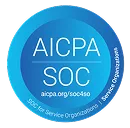
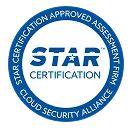
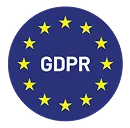
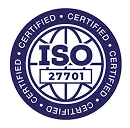









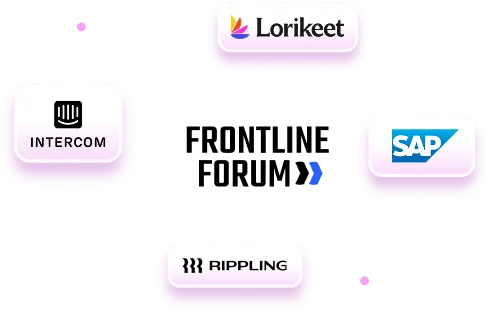
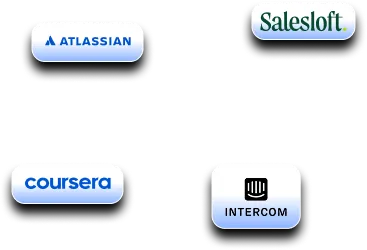

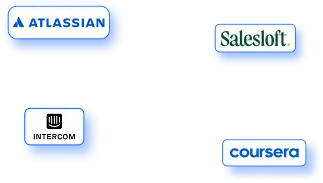
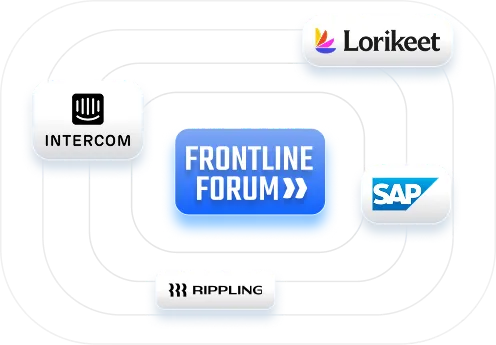
.webp)